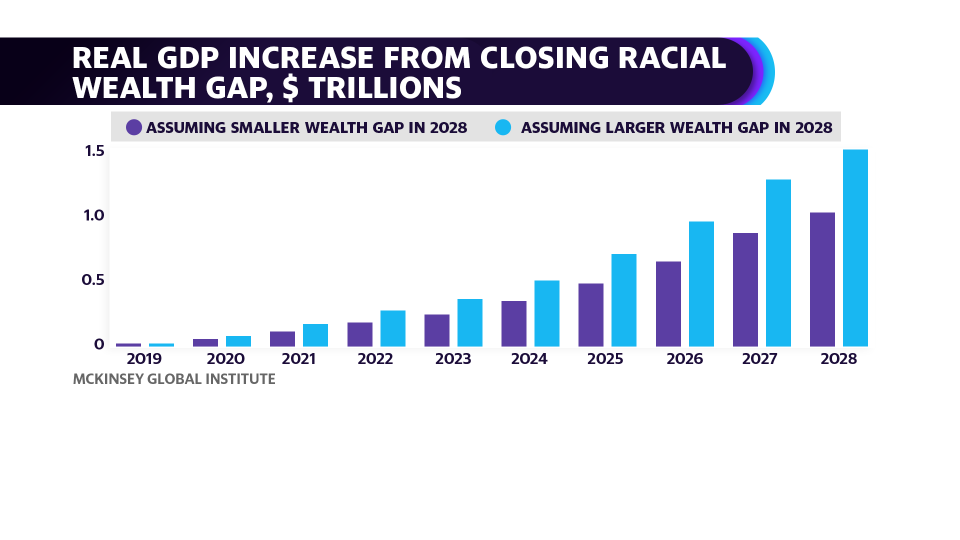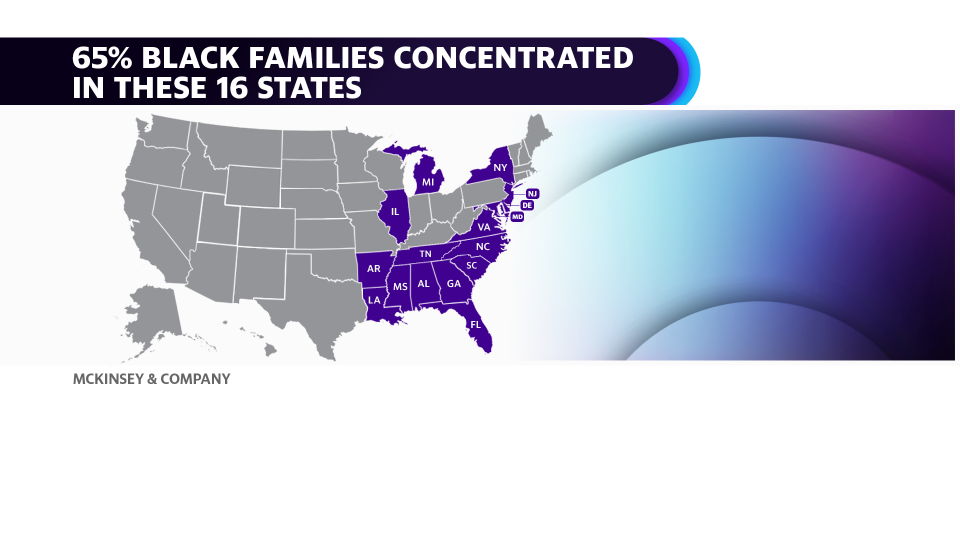'Good for the entire economy:' How closing the racial wealth gap could save $1.5 trillion
There is one topic Democrats running for president like Elizabeth Warren and Bernie Sanders aren’t shy about bringing up, and that’s the racial wealth gap.
As of 2016, a white family had more than 10 times the wealth of a black family, according to McKinsey & Company, citing data from the Federal Reserve Board. That disparity has been growing over the last three decades.
A study by McKinsey out Tuesday found that closing that gap could help the entire economy. The costs tied to the wealth gap, such as reduced consumption, could cost the economy as much as $1.5 trillion between now and 2028.
“This is good for the entire economy, not just black people, not just black communities, but everybody,” McKinsey partner and study co-author Jason Wright told Yahoo Finance’s YFi PM.
Despite the civic and economic progress historically made, especially through the monumental passage of the Civil Rights Act of 1964, black families continue to face systematic and cumulative barriers to building wealth, according to the study.
“The social historical context of laws that for decades kept people from full participation in the free market economy, which dampens wealth,” Wright said. “Since then, some of those laws, and some of those behaviors get inculcated in hidden practices.”

A tough start
The study breaks down the barriers for black families’ path to accumulating wealth. One major contributing factor is family inherited wealth — only 8% black families receive inheritance compared to 26% white families, the study found.
Another barrier is where they live.
“65% of black people cluster in 16 states that fall below the median in our index,” Wright said. “These are states where healthcare, education, and a bunch of other things, mobility, transportation are just below the average.”
The study also notes a black American will earn $1 million less than a white American over their lifetime.
“So the context in which you’re starting is tougher to build and sustain wealth over time,” he said.

Wright’s goal is to be able to convene a set of stakeholders around the topic, and come up with creative solutions. For instance, the study says 17% black families do not have access to traditional banking systems.
“What can financial institutions, along with government leaders, and along with social sector leaders running NGOs in these particular communities do to address the issue of banking deserts? Is it mobile solutions? And how do you make that profitable for the companies that would try to do that?” Wright said.
“We’re just trying to convene people together to get a creative set of solutions out the door.”
Grete Suarez is producer at Yahoo Finance for YFi PM and The Ticker. Follow her on Twitter: @GreteSuarez
Read more:
GRIT BXNG, the gym that lets you box, booze and pay with bitcoin
Your data is personal property, so don't hand it over for free: Ex official
Cost of Capital One’s data breach could exceed $300 million: expert
What Daytona 500 champ Denny Hamlin has in common with Zion, LeBron
Follow Yahoo Finance on Twitter, Facebook, Instagram, Flipboard, SmartNews, LinkedIn, YouTube, and reddit.